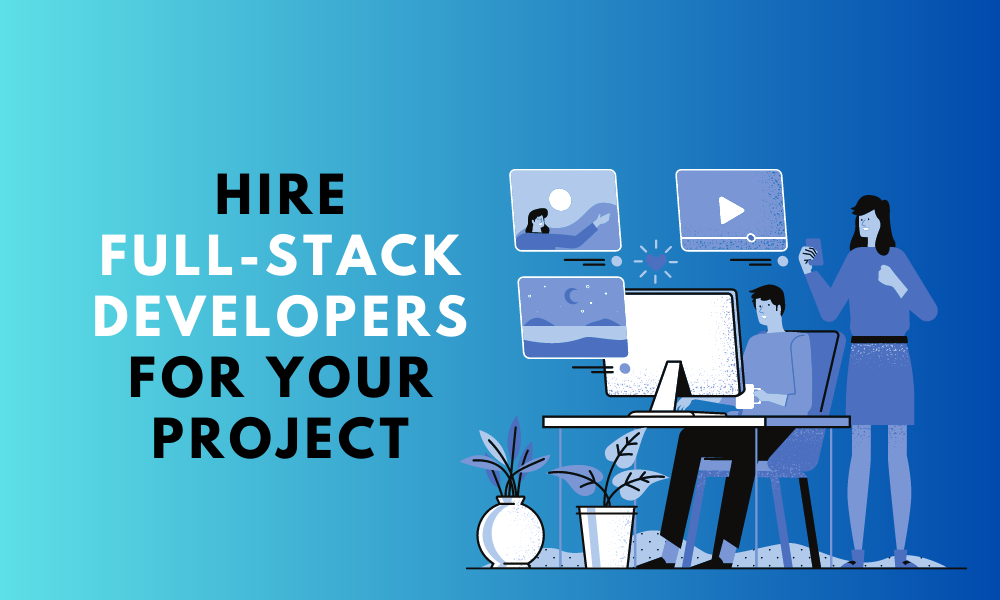In the dynamic landscape of software development, hiring the right talent is crucial for the success of any project. Full stack developers have emerged as versatile professionals capable of handling both front-end and back-end development tasks.
Below are a few of the most significant advantages of hiring a full stack developer for your project:
Versatility and Holistic Skill Set:
Full stack developers possess a wide range of skills covering both front-end and back-end development. This versatility allows them to work seamlessly across different layers of a project, making them indispensable in a development team. They understand the entire technology stack, from databases to user interfaces, enabling them to contribute to various aspects of a project without needing constant supervision.
Efficiency in Development:
One of the primary advantages of hiring a full stack developer is the efficiency they bring to the development process. By having a comprehensive understanding of the entire development cycle, these professionals can quickly switch between tasks, leading to faster project completion. This agility is especially beneficial in fast-paced environments where the ability to adapt to changing requirements is crucial.
Cost-Effectiveness:
Full stack developers can potentially reduce development costs as they eliminate the need for hiring separate specialists for front-end and back-end tasks. With a single developer handling multiple aspects of the project, there is a reduction in communication overhead, streamlining the development process and ultimately saving time and resources.
End-to-End Project Management:
Full stack developers often possess project management skills, allowing them to oversee and coordinate the entire development process. This end-to-end perspective ensures that the different components of a project integrate seamlessly, leading to a more cohesive and unified final product.
Adaptability to Emerging Technologies:
The tech industry is constantly evolving, with new frameworks, tools, and technologies emerging regularly. Full stack developers, by nature, are adaptable and can quickly learn and incorporate these technologies into their skill set. This adaptability is crucial for keeping projects up-to-date with the latest trends and maintaining a competitive edge.
Effective Communication and Collaboration:
Full stack developers, having experience in both front-end and back-end development, are adept at communicating with different team members, including designers, project managers, and other developers. Their ability to understand and bridge the gap between various roles fosters effective collaboration, leading to a more cohesive and well-integrated development team.
Faster Troubleshooting and Problem-Solving:
When issues arise during development, a full stack developer’s holistic understanding of the project allows them to troubleshoot and solve problems more efficiently. Instead of relying on multiple specialists to identify and address issues, a full stack developer can pinpoint problems across the entire stack and implement solutions promptly.
Quality Assurance and Testing:
Full stack developers can actively participate in the testing and quality assurance processes of a project. Their comprehensive knowledge allows them to write effective unit tests, perform integration testing, and ensure the overall stability and reliability of the software. This involvement in testing contributes to the delivery of a high-quality end product.
Rapid Prototyping and MVP Development:
Full stack developers excel in rapid prototyping and MVP software development. Their ability to work on both front-end and back-end components allows for the quick creation of prototypes and MVPs, enabling businesses to validate ideas, gather feedback, and iterate on the product rapidly.
Enhanced Problem Solving:
Full stack developers are equipped with a broad perspective, enabling them to approach problem-solving with a comprehensive mindset. They can analyze challenges from multiple angles and devise solutions that take into account both front-end and back-end considerations, leading to more robust and scalable solutions.
Conclusion:
Hiring a full stack developer for your project offers a multitude of advantages that extend beyond the traditional boundaries of specialized roles. Their versatility, efficiency, cost-effectiveness, and ability to manage the entire development lifecycle make them a valuable asset for any development team. As the tech industry continues to evolve, the demand for full stack developers is likely to grow, emphasizing the importance of recognizing and harnessing the unique advantages they bring to the table.


